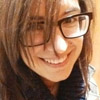
Jenifer Rudski has surfed and paddleboarded her way through Ecuador, Morocco and London, but if you ask her to pinpoint a favourite body of water, she’s quick to answer. Spoiler alert: it’s Canada’s very own Lake Ontario.
“Honestly, my favourite water is on my home territory here in Toronto. Being on Lake Ontario and being around my family and my culture — I love that,” she says. “I live in Hawaii in the winter and everybody is always surprised when I come home for the summer to run Oceah Oceah.”
In 2009, fresh from a surf trip and yoga teacher training, Rudski was first introduced to the world of paddleboarding by a friend. It was a natural progression given her passion for being on the water. “The water has always been a place of healing for me,” she explains. “It’s also really energizing. Being First Nations, the Elders say that we have a responsibility to the water as women. Inherently, we all have this connection to water — and so much of us is made up of water.”
See also: The best ways to meditate, based on your personality type.

At the time, Rudski was a social worker with close ties to the Indigenous kids in her community. “I started getting [them] out on the water and after doing that for a while I decided to start Oceah Oceah,” she says. “I not only wanted to bring it to the urban Indigenous youth I was working with, but also the people in my yoga community.”
Being First Nations, the Elders say that we have a responsibility to the water as women.
And so she combined her two passion projects — yoga and standup paddleboarding (SUP) to create Oceah Oceah with her sisters Sharon and Lana. From June to September, the siblings offer scheduled classes, private outings and special events, workshops and retreats on Lake Ontario. All instructors are Paddle Canada Certified SUP Instructors and the paddle yoga classes are led by Yoga Alliance Certified teachers.
Related: 10 young Indigenous women leading the way for the next generation.

Oceah Oceah is helping people connect with the water
When it comes to getting new clients and adventurous spirits out on the water, the most common impediment Rudski encounters is the outdated assumption that Lake Ontario is filthy.
“I will say that a lot of people’s biggest hesitation is the water quality, so my advice is to educate yourself on the quality of Lake Ontario because it’s a lot cleaner than we are led to believe,” she says. “In the past, it was really dirty, but it’s been cleaned up a lot. But if you don’t want to get on the water, try to get near the water.”
Being on the water is of the utmost importance to Rudski, including as a means of reconnecting with history. When she takes her clients out for leisurely paddleboard sessions, she often points out the historical significance of the Humber River. “It [was] an Indigenous trade route for this territory,” she says. “It’s sort of what created Toronto because it connected the Upper Great Lakes to Lake Ontario, so First Nations people used it for trading.”
See also: Indigenous-owned businesses to support across Canada.
Designated a Canadian Heritage River in 1999, the Humber River pulls water from 750 creeks and tributaries. According to archaeologists, the first settlers, Paleo-Indians, were first documented on the banks dotting the Humber as early as 10,000 BCE. By the 1660s, it was the site of Teiaiagon, a settlement of the Seneca that was popular for trading with Europeans passing through the area.
Even to this day, the water continues to offer plenty of natural gifts for those who take the time to stop and notice. Rudski adds, “There’s lots of salmon that goes from the ocean and up the Humber River. I love the connection to the water and the land and the animals.”

The sisters are providing community support during the pandemic
Every summer, the crew of Oceah Oceah brainstorm a theme for the paddleboard season. Last summer’s theme was silver linings. For Rudski, the Covid-19 pandemic put a heavier emphasis on human connection and getting out into nature – and it was about finding the good in another otherwise difficult global situation.
See also: Interview: Indigenous author Tanya Talaga talks righting legacy wrongs in Canada.
For this season, as the world gradually tries to reopen, Rudski is a little stumped. “It hasn’t quite come to me yet,” she admitted. “There’s been a lot of talk about the children that were found in Kamloops [BC, and across Canada] and, as an Indigenous company, we’ve had a lot of people reach out and ask how we’re doing and how they can support. So I feel [the theme] this summer is about having conversations – even though it can be dark. It feels like each day that we go forward there’s always those triggering moments so we’re trying to think of how we can use that in a positive way.”
To learn more about Oceah Oceah’s Jenifer Rudski, tune into the @AmexCanada #ShopSmallStories Twitter episode here. The Twitter Original series was created in partnership with American Express Canada in support of Shop Small program, a national initiative backed by a Cardmember offer, to encourage Canadians to get behind their local small businesses.
Photos courtesy of Elaine Fancy Photography.


